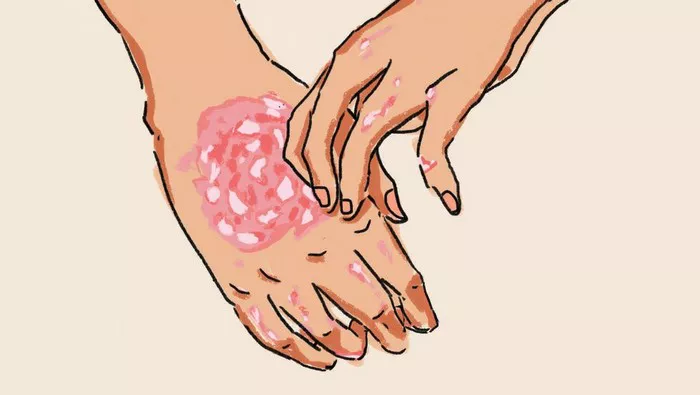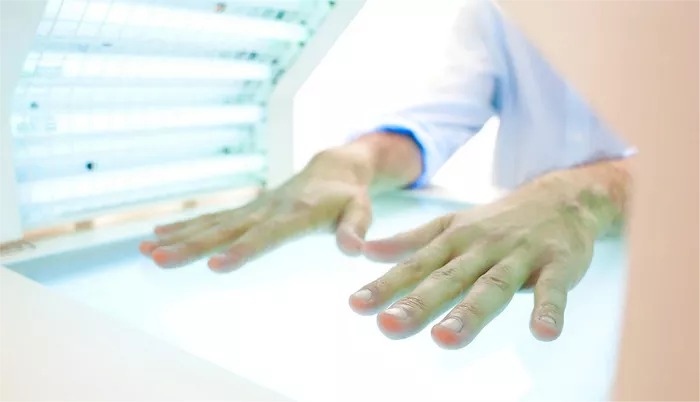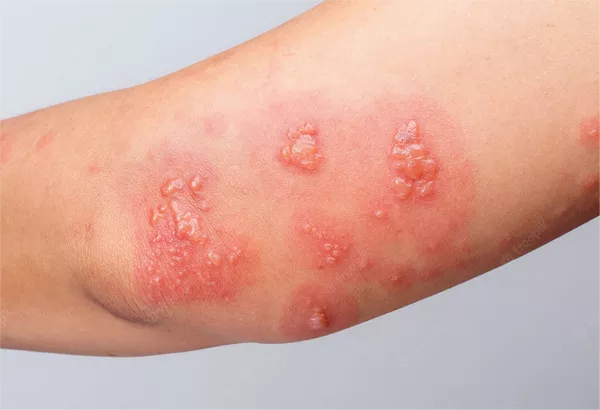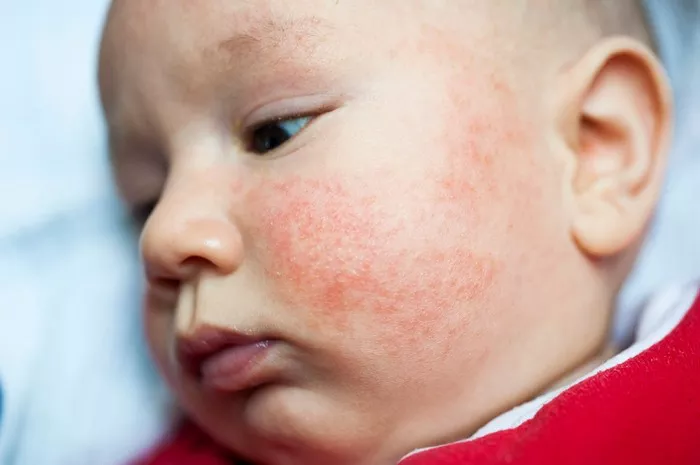Psoriasis is a chronic autoimmune condition characterized by the rapid growth of skin cells leading to scaling on the skin’s surface. This often results in red patches covered with thick, silvery scales, accompanied by itching, burning, and soreness. While the exact cause of psoriasis remains unclear, it is widely believed to be a result of a combination of genetic, immunological, and environmental factors. Among the various environmental triggers, excessive alcohol consumption has garnered significant attention. This article delves into the relationship between excessive drinking and psoriasis, exploring how alcohol may influence the onset and severity of this condition.
Understanding Psoriasis
To comprehend the potential link between alcohol and psoriasis, it is essential to first understand the nature of the disease. Psoriasis is a multifactorial condition, meaning it is influenced by a variety of factors:
1. Genetics: Family history plays a crucial role. Individuals with a first-degree relative suffering from psoriasis have a higher risk of developing the disease.
2. Immune System: Psoriasis is primarily an immune-mediated condition. T-cells, a type of white blood cell, become overactive and trigger inflammation and rapid skin cell production.
3. Environmental Triggers: These can include infections, stress, skin injuries, certain medications, and lifestyle factors such as diet and alcohol consumption.
SEE ALSO: The 6 Best Body Scrubs for Psoriasis
The Role of Alcohol in Psoriasis
Research has increasingly suggested that lifestyle choices, particularly alcohol consumption, can exacerbate or even trigger psoriasis. Here’s a detailed look at how alcohol affects the condition:
Alcohol and Immune System Modulation
Excessive alcohol consumption has a profound impact on the immune system. It can suppress immune function, making the body more susceptible to infections and other diseases. Conversely, alcohol can also stimulate an overactive immune response, contributing to the inflammation seen in psoriasis. Chronic alcohol use can lead to a state of immune dysregulation, potentially triggering autoimmune conditions like psoriasis.
Alcohol as a Pro-Inflammatory Agent
Alcohol itself is a pro-inflammatory substance. Chronic intake can increase the levels of pro-inflammatory cytokines in the body. Cytokines are signaling molecules that regulate immunity and inflammation. In psoriasis, specific cytokines such as tumor necrosis factor-alpha (TNF-α) and interleukins play a pivotal role in driving the inflammatory processes. Alcohol can increase the levels of these cytokines, exacerbating the inflammatory response that characterizes psoriasis.
Impact on Skin Health
Alcohol can negatively affect skin health in various ways. It dehydrates the skin, disrupts the natural skin barrier, and can lead to a variety of dermatological issues. For individuals with psoriasis, the drying effect of alcohol can worsen the scaling and flaking of the skin. Additionally, alcohol-related liver damage can impact the skin’s ability to regenerate and repair itself, further complicating psoriasis management.
Psychological Stress and Alcohol Use
Many individuals with psoriasis experience significant psychological stress due to the visible and often stigmatizing nature of the condition. Stress is a known trigger for psoriasis flare-ups. Unfortunately, some individuals may turn to alcohol as a coping mechanism for this stress, creating a vicious cycle where alcohol consumption exacerbates psoriasis, leading to more stress and, consequently, more drinking.
SEE ALSO:The 6 Best Topical Steroids for Psoriasis
Evidence from Clinical Studies
Several studies have investigated the link between alcohol consumption and psoriasis, providing compelling evidence of a correlation:
1. Epidemiological Studies: Population-based studies have shown that individuals who consume alcohol excessively are more likely to develop psoriasis compared to non-drinkers. These studies also suggest that the risk increases with the amount of alcohol consumed.
2. Clinical Observations: Dermatologists have observed that patients with psoriasis who consume alcohol tend to have more severe disease symptoms. Moreover, alcoholics are often found to have a higher prevalence of psoriasis than the general population.
3. Gender Differences: Research indicates that the relationship between alcohol and psoriasis may vary by gender. Some studies suggest that men are more likely to experience alcohol-induced psoriasis compared to women. This may be due to differences in alcohol metabolism and immune system responses between genders.
4. Alcohol and Psoriatic Arthritis: Psoriatic arthritis, a complication of psoriasis, also appears to be influenced by alcohol consumption. Studies have found that excessive drinking can exacerbate joint pain and inflammation, making the management of psoriatic arthritis more challenging.
Mechanisms Linking Alcohol to Psoriasis
While the exact mechanisms by which alcohol influences psoriasis are not fully understood, several plausible explanations have been proposed:
1. Immune Dysregulation: As previously mentioned, alcohol can disrupt normal immune function, leading to an overactive immune response that promotes psoriasis.
2. Gut Microbiota Alteration: Alcohol consumption can alter the gut microbiota, the community of microorganisms living in the digestive tract. An imbalance in these microorganisms can lead to increased intestinal permeability (often referred to as “leaky gut”), which allows toxins and other harmful substances to enter the bloodstream, potentially triggering or worsening autoimmune responses.
3. Oxidative Stress: Alcohol metabolism produces reactive oxygen species (ROS), which can cause oxidative stress. Oxidative stress has been implicated in the pathogenesis of psoriasis due to its role in promoting inflammation and cellular damage.
4. Hormonal Imbalance: Chronic alcohol use can disrupt the balance of various hormones in the body, including those involved in inflammatory responses. Hormonal imbalances may contribute to the onset and severity of psoriasis.
Alcohol and Psoriasis Management
Given the evidence linking alcohol consumption to psoriasis, it is crucial for individuals with the condition to consider their drinking habits as part of their overall management plan. Here are some recommendations:
1. Moderation: While complete abstinence may not be necessary for everyone, moderating alcohol intake is advisable. The National Psoriasis Foundation suggests that individuals with psoriasis should limit their alcohol consumption to reduce the risk of flare-ups.
2. Seeking Professional Help: For those struggling with alcohol dependence, seeking help from healthcare professionals is essential. Treatment options such as counseling, medication, and support groups can aid in reducing alcohol intake and improving overall health.
3. Healthy Lifestyle Choices: Adopting a healthy lifestyle can significantly impact psoriasis management. This includes maintaining a balanced diet, engaging in regular physical activity, managing stress through mindfulness and relaxation techniques, and avoiding other known psoriasis triggers like smoking and certain medications.
4. Monitoring Symptoms: Individuals with psoriasis should closely monitor their symptoms in relation to alcohol consumption. Keeping a symptom diary can help identify patterns and triggers, aiding in better management of the condition.
Conclusion
The relationship between excessive drinking and psoriasis is complex and multifaceted. While alcohol consumption is not the sole cause of psoriasis, it is a significant environmental factor that can trigger and exacerbate the condition. Understanding the mechanisms by which alcohol influences psoriasis can help individuals make informed choices about their drinking habits and adopt a holistic approach to managing their condition.
For healthcare providers, emphasizing the importance of lifestyle modifications, including reducing alcohol intake, is crucial in the comprehensive management of psoriasis. Continued research is needed to further elucidate the intricate connections between alcohol, immune function, and psoriasis, ultimately leading to more effective prevention and treatment strategies for this chronic and often debilitating condition.
Related Topics:


























